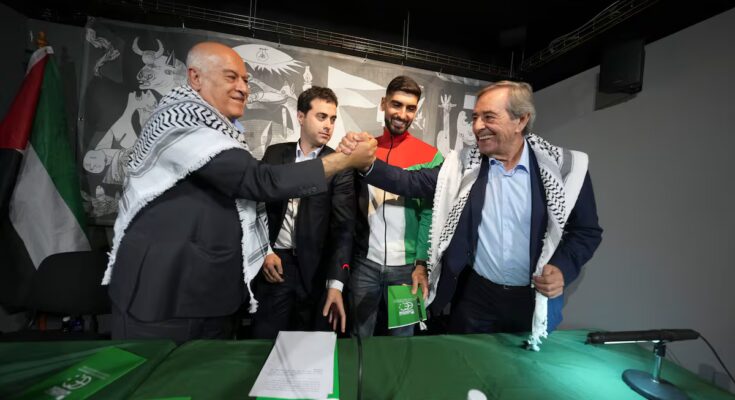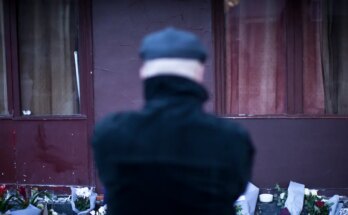One afternoon in 2019 Yaser Hamed, Palestinian surname but resident in Leioa (Bizkaia), received a personal message on Facebook. It was written in Arabic and with the help of Google Translate he managed to find out that it was a call to go to Ramallah in the West Bank. “The first thing I did was to see if the boy who wrote to me was really the coach and then I managed to find out that they were calling me to play for the national team. Hamed was 22 years old and played for Portugalete, in the Third Division.
His father came to Spain in the seventies to study medicine. After completing his studies he settled in the Basque Country, where he met his wife and settled in Leioa to start a Basque family with five children. “He never returned to Gaza. He didn’t instill in us the struggle of the Palestinian people or anything like that.” Yaser did not grow up among demonstrations or militancy, but his role in the Palestinian team made him an idol and an ambassador known throughout the Arab world. “Last summer I was on holiday in Mallorca with my girlfriend. We found a huge bouquet of flowers in the hotel room. The cook, a Moroccan, had left it for me and when she found out who I was, she wanted to thank me for what I was doing for Palestine. It’s incredible,” says Hamed from Doha, where he plays for Al-Gharafa, the team of former Real Madrid player Joselu.
Since his first trip to Ramallah in 2019, Hamed has not stopped becoming aware of the importance of football for Palestinians. The team now plays at home in Qatar and is one of Palestine’s main diplomatic assets. On his debut he scored a historic goal against Yemen and in the midst of the conflict with Israel in 2023 they managed to advance to the next round in the Asian Cup for the first time.
The first trip to Ramallah in 2019 was a crash course in the situation experienced by his compatriots. The crossing of the border at the Israeli airport was a baptism of violence and mistreatment that marked him. Today he naturalizes Palestine’s tension with Israel, which he calls “the other country”, convinced that any political message will create problems for him to continue to play his role as a player for the Palestinian team.
A few years ago Yaser had an idea that would realize his highest sporting aspirations. “I have always dreamed of playing in San Mamés and I participated with the Euskadi national team in regional competitions, so I contacted the last presidents of the Basque team, Javier Landeta and Iker Goñi, and put them in contact with the Palestinian team. Between the tight schedule and the many problems I thought it would be very difficult until this summer the phone rang. Secret negotiations had started and the dream of bringing Palestine to San Mamés it has finally come true,” he explains. The social mobilizations against the Israeli genocide, especially during the Vuelta a España, have highlighted the contradictions of European professional sport with the treatment reserved for Israel. Social commitment transformed the unthinkable into reality with the calling of a Euskadi-Palestine event on November 15th in Bilbao, which in just a few hours sold more than 30,000 tickets on the Basque federation’s website.
Hamed has played in Bahrain, Egypt, Kuwait, India and Qatar. He is a football globetrotter who has given meaning to his career thanks to the power of the ball to defend a just cause. Despite the suffering of the Palestinian people, Yaser is optimistic. “We will play in San Mamés, but I also know that we will play again at home, in the West Bank.” And in Gaza? “I hope so, but I consider it impossible,” he sums up.



